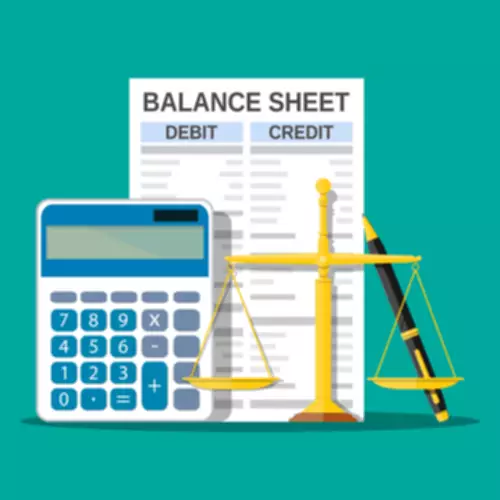Content

When the inventory is received and accepted at the destination, the delivery confirmation serves as proof of the goods leaving the seller inventory. The delivery confirmation serves a similar purpose for the buyer’s accounting department. After the goods are accepted, they are logged in to inventory and accounted for as assets in the business.
If you prefer to opt out, you can alternatively choose to refuse consent. Please note that some information might still be retained by your browser as it’s required for the site to function. For freelancers and SMEs in the UK & Ireland, Debitoor adheres to all UK & Irish invoicing and accounting requirements and is approved by UK & Irish accountants.
FOB (shipping)
Shipping terms are important because of the massive worldwide volume shipped, and the need to have a common understanding of these terms for contracts. The terms affect shipping costs, liability, and even financial statements for accounting. With so many languages spoken, it makes sense to have agreed-upon terms to lessen confusion. In North America, the term “FOB” is written in asales agreementto determine when the liability and responsibility for the shipped cargo transfers from the seller to the buyer.
Where the FOB terms of sale are indicated as “FOB Origin,” the buyer is responsible for the costs involved in transporting the goods from the seller’s warehouse to the final destination. FOB is a common term used for all types of shipping, both domestic and international. On the other hand, FOB Destination means that the receiver/ buyer takes responsibility and ownership of the goods until they are delivered to the doorstep of the buyer. In this case, the seller tends to be responsible for freight charges of the goods to the buyer. More to that, the seller is also liable for any damages of the goods when they are in transit to the buyer. However, the seller may charge the buyer for these transportation costs.
Other FOB Terms
The shipping company requires payment before shipping the goods, so the process of arranging and paying for shipping is all done in advance. Whether the buyer or seller is responsible for shipping charges depends on the specific FOB Destination arrangement. In shipping arrangements classified as FOB Destination, Freight Collect, the buyer is responsible for shipping costs. In FOB Destination, Freight Prepaid & Add arrangements, the seller pays for the shipping costs but then passes on the cost to the buyer. Freight terms of FOB shipping point mean that the seller must debit freight out. Goods are placed free on board at the buyer’s place of business. Therefore, as you imagine how great it is to export goods and you may not have to pay for the freight charges beyond the port.
- If ‘FOB Destination, freight collect’ is specified, it means that the buyer is the one to pay for the freight.
- If you prefer to opt out, you can alternatively choose to refuse consent.
- The seller’s only responsibility is to bring the package to the loading dock or delivery truck.
- Terms indicating that the buyer must pay to get the goods delivered.
Incoterms define the international shipping rules that delegate responsibility of buyers and sellers. These terms are reviewed and updated once every decade. For example, assume Company XYZ in the United States buys computers from a supplier in China and signs a FOB destination agreement. Assume the computers were never delivered to Company XYZ’s destination, for whatever reason. The supplier takes full responsibility for the computers and must either reimburse Company XYZ or reship the computers.
FOB Pricing: What is the Difference Between FOB and other ocean shipping incoterms?
The fob shipping point shipping point is an important term to understand in a contract, as it can significantly affect how much you pay for packing materials and insurance. Which statement is true concerning the Freight-out account? D) It is recorded by the buyer when freight tenus arc FOB shipping point.
What do freight terms of FOB shipping point indicate quizlet?
FOB Shipping point means that the buyer pays for shipping and is responsible in transit. FOB Destination means that the seller pays the shipping and is responsible in transit.
This is because this method offers some of the most effective terms for shipping costs. For that reason, it happens to be convenient for most shippers as well as receivers. FOB shipping stands for free on board which in some cases is referred to as Freight on board. Well, this is a set of Incoterms that tend to govern the party that owns as well as pays for shipments to overseas.
What Is the Difference Between CIF & FOB?
Additionally, the buyer doesn’t have the opportunity for the delivery to be made to its final destination. Instead, the goods arrive at their destination port, and the buyer must arrange any onward carriage to the warehouse. FOB is most widely used to import products from Asia to the UK and is best used when a buyer uses a China Freight Forwarder to organise the shipments as it offers a low unit pricing for the cargo. FOB shipping only applies to sea and inland waterway modes of transport in the vast majority of countries. However, in North America, the term FOB has been expanded for all types of transportation under the Uniform Commercial Code .

When a product is sold “FOB shipping point,” the buyer pays the seller or supplier nothing more than the cost of transporting the product to the designated shipment point. When products are received at the location the customer specifies, ownership passes from the seller to the buyer.





Comments(29)